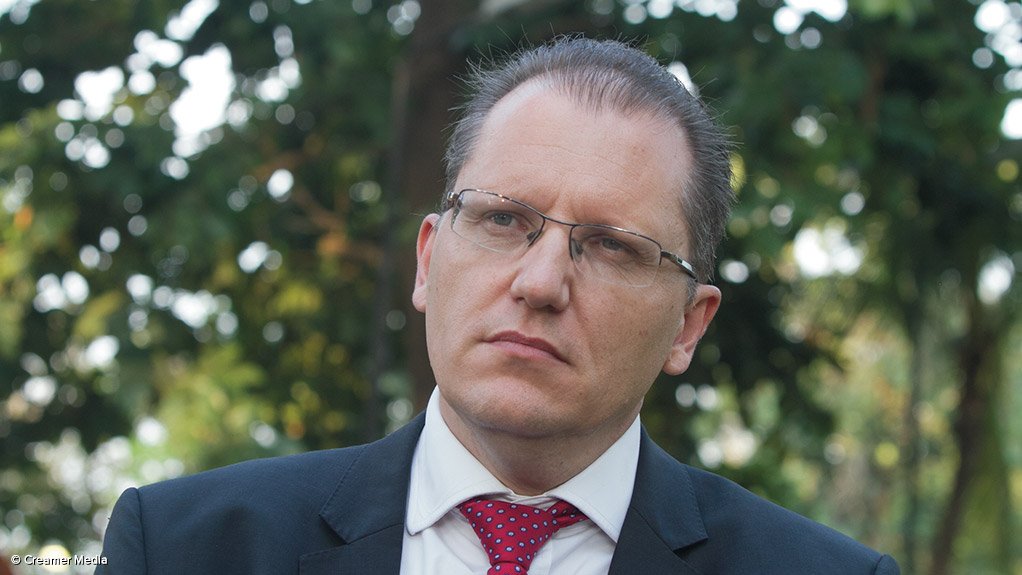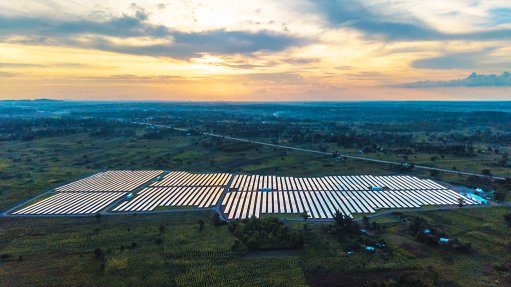Unabated export of scrap is ‘economic sabotage’
Government’s aspirations to raise beneficiation levels, once implemented, would certainly be a massive leap towards stemming the tide of the deindustrialisation South Africa has witnessed in recent years. As a country, our relative competitive advantage has deteriorated sharply, given a series of factors. The global financial crisis spurred a new level of competitiveness globally. Sadly, South Africa’s competitiveness continues to slip, based on countless reports and media articles.
The reality of this is clearly evident in the steel manufacturing industry. The cost of key inputs into the manufacturing process continue to grow at a pace beyond that experienced by our international competitors. Our labour climate, while challenging, fails to make vital productivity gains necessary to normalise wages gains. Energy costs are set to continue growing at an alarming rate.
Scrap steel, the key raw material ingredient for the South African mini-mill and foundry industry, is also ‘technically’ in short supply. While there is ample steel scrap locally, the short supply is driven by vast exports of the material to mainly India and Pakistan. The resultant shortage has fuelled local prices of scrap material, thus further impeding the country’s manufacturing competitiveness.
Given industry cries and the obvious quantum of scrap exports, government introduced the Preferential Pricing System (PPS) in 2013, an attempt to limit the export of both ferrous and nonferrous scrap. Against industry pleas of an outright ban on the export of scrap or at least an export tax, government chose to implement the PPS. To date, the PPS has proved ineffective in limiting the export of scrap material. Fresh amendments to the PPS currently being considered are pointless as scrap material exporters will continue to circumvent the regulations, as is presently the case.
The ferrous and nonferrous manufacturing industry has been quick to realise that a radical change of its mindset is necessary to ensure future sustained competitiveness. As a result, investment in skills and equipment has increased substantially. These efforts are negated by our country’s policy on raw material exports being essentially the inverse of those of other developing nations. The majority of our Brics (Brazil, Russia, India, China and South Africa) and Southern African Development Community counterparts have introduced firm policies either taxing or banning the export of scrap material.
The outright ban of exports from South Africa will undoubtedly create a huge surplus scrap material locally. The resultant effect would translate into substantially reduced prices, thus providing a vital source of competitive advantage for the growth of an industry that could easily beneficiate this material into secondary value-added products. Much of the equipment needed to beneficiate this scrap presently stands idle, while South African manufacturers are unable to even climb onto the first ladder rung towards improved competitiveness. Given the closure of more than 200 foundries in South Africa since 2003, the bulk of their previously beneficiated output now streams in from countries such as Australia, Canada, China, Malaysia, India and China.
While we all loudly voice our aspirations of raising beneficiation levels, it is frustrating that the basic low-hanging beneficiation opportunities within the ferrous and nonferrous scrap manufacturing sector are stifled by a lack of a firm policy similar to those of our international trading partners. The beneficiation of competitively priced scrap material is undoubtedly the easiest beneficiation opportunity that can quickly yield much-needed jobs and at least tame the aggressive importation of basic products produced from scrap.
Alone, the revival of just a handful of foundries in South Africa will boost a myriad of businesses linked in terms of the supply of services, consumables and further downstream processing.
While the vast export of scrap material from South Africa erodes the easiest beneficiation opportunities, our economy suffers a secondary related hardship of the unprecedented theft of scrap material to fuel the supply of scrap material to export merchants.
The landscape and economy across the country has been ‘scared’ with the theft of copper cables, highway crash barriers, drain covers and more. Many refer to this theft as “economic sabotage”. However, surely the real economic sabotage is the unabated export of scrap material.
Comments
Press Office
Announcements
What's On
Subscribe to improve your user experience...
Option 1 (equivalent of R125 a month):
Receive a weekly copy of Creamer Media's Engineering News & Mining Weekly magazine
(print copy for those in South Africa and e-magazine for those outside of South Africa)
Receive daily email newsletters
Access to full search results
Access archive of magazine back copies
Access to Projects in Progress
Access to ONE Research Report of your choice in PDF format
Option 2 (equivalent of R375 a month):
All benefits from Option 1
PLUS
Access to Creamer Media's Research Channel Africa for ALL Research Reports, in PDF format, on various industrial and mining sectors
including Electricity; Water; Energy Transition; Hydrogen; Roads, Rail and Ports; Coal; Gold; Platinum; Battery Metals; etc.
Already a subscriber?
Forgotten your password?
Receive weekly copy of Creamer Media's Engineering News & Mining Weekly magazine (print copy for those in South Africa and e-magazine for those outside of South Africa)
➕
Recieve daily email newsletters
➕
Access to full search results
➕
Access archive of magazine back copies
➕
Access to Projects in Progress
➕
Access to ONE Research Report of your choice in PDF format
RESEARCH CHANNEL AFRICA
R4500 (equivalent of R375 a month)
SUBSCRIBEAll benefits from Option 1
➕
Access to Creamer Media's Research Channel Africa for ALL Research Reports on various industrial and mining sectors, in PDF format, including on:
Electricity
➕
Water
➕
Energy Transition
➕
Hydrogen
➕
Roads, Rail and Ports
➕
Coal
➕
Gold
➕
Platinum
➕
Battery Metals
➕
etc.
Receive all benefits from Option 1 or Option 2 delivered to numerous people at your company
➕
Multiple User names and Passwords for simultaneous log-ins
➕
Intranet integration access to all in your organisation





















